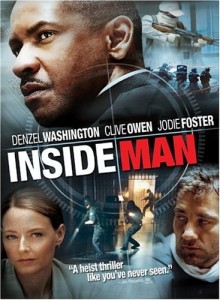Culture Shock #8 – in which our hero hits the high notes… but more cheaply
They say that one of the beauties of being on exchange in continental Europe – especially in a town like Passau, nestled between three central European countries – is the freedom it affords to travel around and see more of this mysterious Europe we live in. What most people don’t mention when they say it is that transport between European cities, in the absence of a local Ryanair or EasyJet, is often prohibitively expensive and unless you can spot a cheap train abroad (suffice to say, rare in Germany) and book it months in advance, getting around isn’t quite as easy as one might like. Throw in the fact that the place is so damn cheap that one can drastically overspend with appalling ease and it becomes just short of impossible.
What many people never seem to notice, though, is that a hidden gem in living in Europe – hey, even a hidden gem in living anywhere away from greater Dublin – is that bands who may have already made it big at home or in America have a little more difficulty making a name for themselves outside the English-speaking world. Hence, countries like Germany often play host to artists, often ones who have had a multitude of chart-toppers back home, playing gigs trying to worm their away into local affections. And… well, yeah, you’ve guessed my main point. Germany is no Ireland, and Kartenhaus is no Ticketmaster: concerts are damn cheap over here.
Take Razorlight, who by the time you read this, will be preparing to play the RDS next Tuesday. Before ticketmaster.ie sold out for the gig, you’d have expected to pay €44.20 on top of the distinctly unmissed handling and booking fees. Contrast this to the three Belfield girls I’m deployed in Passau with, who late last month saw the same gig in Munich for €19. Now whether you think that this is still too high a price to pay to deal with Johnny Borrell’s gangling semi-nudity for ninety minutes or not, it’s difficult to argue against how favourable it ends up when you’re seeing a band with six hit singles in a venue smaller than the Student Bar (with the shutters down), at a gig that didn’t even sell out, for less than half the price you’d pay to see them in a glorified school hall in Dublin where you could be half the length of the concourse away from the front row. Whatever you think yourself, I’m sold, and when next you read me I’ll have been to the same venue to see The Fratellis. I’ll save you the anguish of knowing how cheap the ticket was. Suffice it to say, it was €17.
But yet, native Germans, despite their standard-issue impeccable level of English, don’t seem to really grasp how well they have it. Tune into RTL (think of it as TV3 without a weatherman who looks like he’s running for a County Council seat) on Saturday evening and you get to feast your eyes on a double-bill of Deutschland Sucht Ein Superstar: Pop Idol with two evil judges. And you wonder where Germans earned this reputation of being evil?…
Bis bald,
Gav
